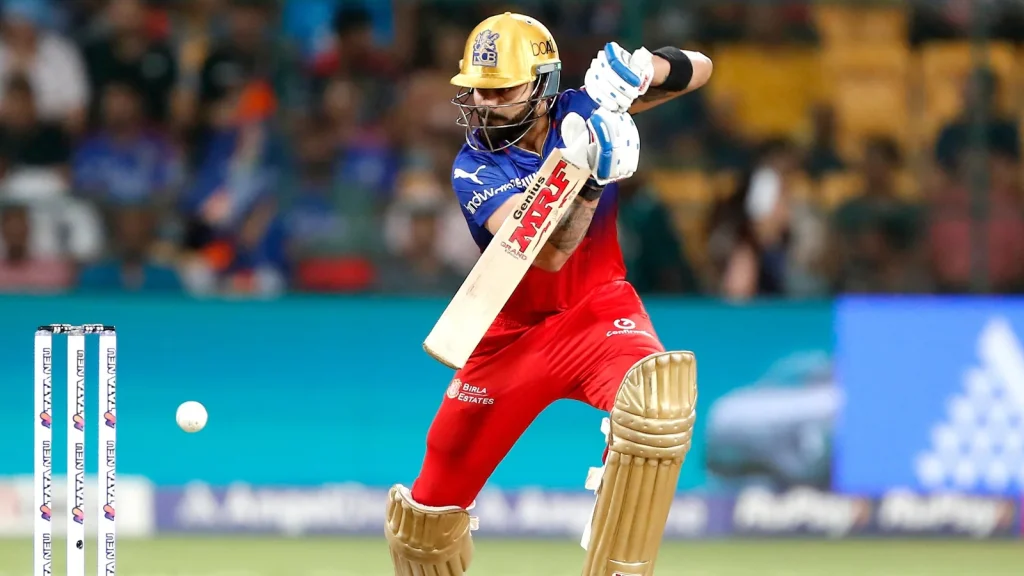
Only a few days ago, Virat Kohli had hit out at his strike-rate critics, ostensibly aiming his rant at Sunil Gavaskar, without naming him. Now the legendary former India opener has responded, saying the commentators were responding to what they saw in front of them.
“Commentators questioned only when the strike rate was 118,” Gavaskar said on Star Sports. “I’m not too sure. I don’t watch too many matches, so I don’t know what the other commentators have said otherwise. But if you have a strike (rate) of 118 and then you get out in the 14th or the 15th with a strike-rate of 118, I mean, if you want applause for that, that’s a little bit different. That’s different.”
Gavaskar had launched a strong critique of Kohli, as the latter scored a 43-ball 51, with a strike-rate of 118.60, against Sunrisers Hyderabad. “In the middle, he just seemed to have lost touch,” he said on air.
“I’m not sure of the exact numbers, but I think from 31-32 to the time he got out, he did not hit a boundary. So at the end of the day, when he got out when you are facing the strike in the first ball of the innings and you get out in the 14th or the 15th over, you have got strike-rate of 118, that’s not what your team expects from you. ”
Kohli responded to that after scoring 70 not out off 44 balls against Gujarat Titans, saying: “All people who talk about strike-rates and me not playing spin well talk about these things. It’s just about doing my job. It’s kind of muscle memory for me now. We can’t carry on like we did in the first half. We are attacking the game way more. That’s the way we want to play our cricket. And it’s not been up to the standard except in the last two games. It’s about us as cricketers having some self-respect.”
Kohli spoke about not paying attention to the outside noise and Gavaskar pointed that out. “All these guys talk about how we don’t care about outside noise. Then why are you replying to any outside noise or whatever it is? We all played a bit of cricket, not a lot of cricket. We don’t have agendas. We speak about what we see. We don’t necessarily have any likes and dislikes. Even if we have likes and dislikes, we actually speak on what is happening.”




